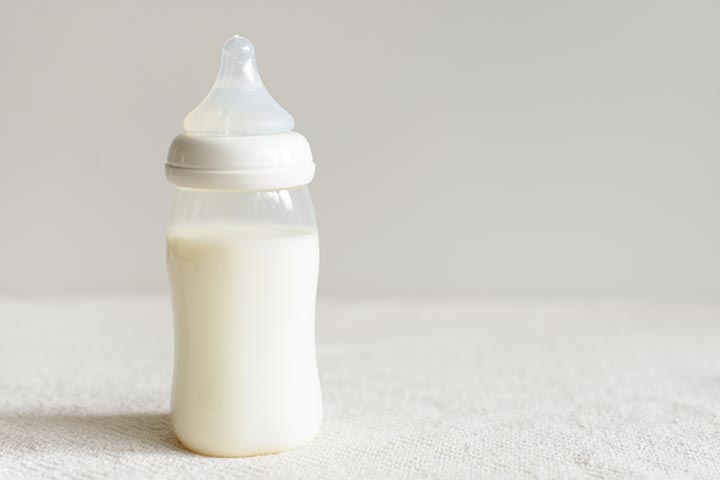
Image: Shutterstock
I’ve always known the importance of breast milk. The Centers for Disease Control and Prevention and the World Health Organization, along with some of the top health authorities, have all collectively agreed that breast milk is one of the healthiest foods for your little one (1).
In fact, the Centers for Disease Control and Prevention has recommended exclusive breastfeeding for the first six months of the baby’s life, after which the next twelve months could include breast milk as the primary source of nutrition, complemented with other beverages or soft foods (2).
From verified sources like the ones listed above, I also know that baby formula is an excellent substitute for breast milk. Many mothers experience problems with breastfeeding such as low milk supply, insufficient glandular tissue, hormonal issues, and problems with the child such as a tongue-tie or cleft lip. In such cases, baby formula is nothing short of a blessing (3).
Basically, we mommies don’t have to worry much about our child’s nutritional needs until shortly after six months. But once your baby has crossed this stage, we have to take into consideration other foods that babies can safely consume (4). I’ve always wondered if cow’s milk, the ever-present food in most of our pantries, could be a good option for my child. After tons of research, here’s what I’ve come to conclude; keep reading!
What The Experts Say Is Best
First things first, cow’s milk or any other beverage cannot be a substitute for breast milk or baby formula. The American Academy of Pediatrics very firmly stands its ground on what a baby should be consuming in the first year of life. There are no two ways about breast milk or baby formula for the first six months (5).
Not many people know this, but it is recommended that you introduce your little one to water only after the age of six months! Until the age of six months, breast milk or formula is sufficient. It also provides enough hydration. Water is not required because it adds no value, and it can also cause issues. You can start giving your baby small amounts of water, maybe in a sippy cup, after six months of age. After your baby’s first birthday, medical experts suggest slowly incorporating certain other foods into their diet. This includes coconut water, mashed rice, flavored water, and just plain water (6).
As far as cow’s milk goes, here’s what they have to say — after your baby has turned a year old, you can introduce them to cow’s milk in small amounts. You may think that eleven months is just a month less for your baby to reach a year, but it is best not to compromise on the health of your child. No matter how much nutrition you can get from cow’s milk, it does not match up to what your baby requires and gets from the mother’s breast milk or baby formula (7).
What About Any Side Effects?
There are a bunch of side effects associated with the consumption of cow’s milk in babies. Milk allergy happens to be one the most common forms of food allergies, so it can be a cause of concern when it comes to your baby. Cow’s milk has a good amount of protein, and a baby’s system is not ready to handle such a high amount of protein content. Also, it can interfere with their body’s ability to be able to absorb enough iron. Finally, there are chances that your baby could be lactose intolerant. It is best to check with your doctor so you can avoid all these complications (7).
In addition to a high amount of protein, cow’s milk is also known to have a considerable amount of vitamin D, sodium, and calcium. Too much of this can be difficult for your baby to digest, thereby causing problems (8).
The best way to deal with this is by following the three-day rule. Introduce cow’s milk slowly as a part of your child’s diet. You can begin with small amounts mixed with either expressed breast milk or baby formula. During these three days, make sure you observe your child for any discomfort or allergic reactions. A few symptoms to watch out for include rashes, fever, constipation, diarrhea, or vomiting. If you have observed that your baby is in distress, it is best to take them to the doctor (9).
With all the research I gathered from reliable sources, I believe that it is best to listen to what the experts have to say. I’m sure none of us wants to put our little one at risk, so maybe we could push the consumption of cow’s milk to after your baby’s birthday. However, if you have decided to go ahead and give your child cow’s milk, do so after your doctor has given the go-ahead. What have you decided for your child? Let us know in the comments below!














